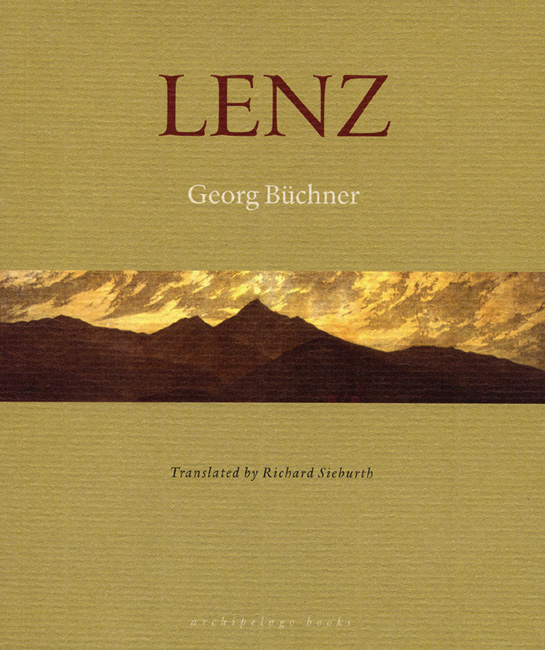Book Description
—Bilingual Edition—
Lenz, Georg Büchner’s visionary exploration of an 18th-century playwright’s descent into madness, has been called the inception of European modernist prose. Elias Canetti considered this short novella to be one of the seminal reading experiences of his entire life, and writers as various as Paul Celan, Christa Wolff, Peter Schneider, and Gert Hofmann have paid homage to it in their works.
Published posthumously in 1839, Lenz is a taut case study of three weeks in the life of a schizophrenic, perhaps the first third-person text ever to be written from the “inside” of insanity. An early experiment in docufiction, Büchner’s textual montage draws on the diary of J.F. Oberlin, the Alsatian pastor who briefly took care of Lenz in 1778, while also refracting Goethe’s memoir of his troubled friendship with the playwright.
English versions of both of these historical source texts here accompany Lenz for the first time in this bilingual presentation. Based on the most recent edition of the text, this fresh translation will allow readers to discover why Heiner Müller pronounced Lenz the inaugural example of “21st-century prose.”
Büchner’s Lenz represents a brilliant and widely influential prefiguring of the modernist narrative imagination. For the first time, thanks to Richard Sieburth’s astonishing skills, we have a version in English that respects and communicates the radical inventiveness and stylistic singularity of the original. It is a work that fully breathes in the present.
— Michael Palmer
Richard Sieburth is one of handful of magnificent literary translators among us—witness his Hölderlin, Nerval, Scève, and Gershom Scholem’s poems. His extraordinary rendition of Büchner’s Lenz is both a superb version and a startling interpretation of a great and vital work. The beautifully produced little volume is amazingly rich, giving us Büchner’s 'source' in Oberlin, Goethe’s reflections upon Lenz himself, and crucial commentary.
— Harold Bloom
Like a jewelry chest, the covers of this book open on a gem of German prose, brought to its full radiance by Richard Sieburth's splendid translation, accompanied by the German original as usually befits only poetry, and set among extensive notes and additional texts which allow the reader to appreciate its historical importance as well as its present powerful effect. I'd like to call Lenz a score, a score to go mad over...
— William H. Gass
The “never-ending torture of unrest” is the burden of existence we all carry, sloppily fumble, negotiate with an awkward grip and bent back. Büchner’s analysis fascinates in its refusal to lighten this burden or ponderously dwell on its existential weight. Instead, Lenz is a character study that the reader can’t quite get out of—we’re too inside the frame to see the full contours; precariously perched on Lenz’s shoulder, we have to jostle along with him, look through his wild eyes, gallop along with him on the energy of his madcap idea. The gallop is sad and beautiful and rewarding. Very highly recommended.
— Edwin Turner, Biblioklept

